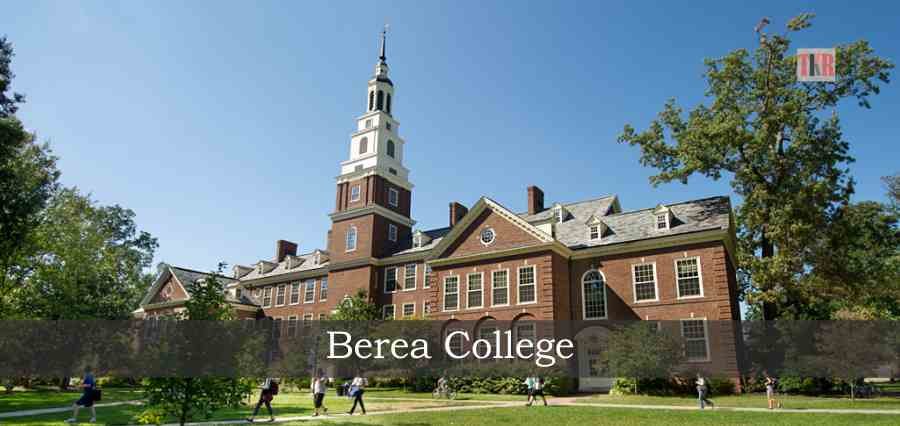The college aims to offer high-quality liberal arts education that engages students as they pursue their personal, academic, and professional goals.
Nurturing Women Empowerment and Gender Equality
Berea College was the first interracial and coeducational College in the South. Since its founding in 1855, Berea College has provided education and social equality to women. Within Berea’s mission statement, the “Great Commitments” is a statement of specific commitment “To create a democratic community dedicated to education and gender equality.”
Berea College focuses on learning, labor, and service. The College admits only academically promising students with limited financial resources, primarily from Kentucky and Appalachia, although students come from 40 states and 70 countries. Every Berea student receives a Tuition Promise Scholarship, which means no Berea student pays for tuition. Berea is one of nine federally-recognized Work Colleges, so students work 10 hours or more weekly, earning money for books, housing and meals. The College’s motto, “God has made of one blood all peoples of the earth,” speaks to its inclusive Christian character. Known for its academic quality and rigorous curriculum, Berea College attracts distinguished faculty, such as Bell Hooks, Silas House, and Crystal Wilkinson, among others.
Major Accomplishments
Berea is consistently ranked as a leading private liberal arts colleges in the U.S., earning the #1 spot by Washington Monthly. Kiplinger named Berea among the 10 Best Values in Private Colleges. Berea was selected for the U.S. President’s Higher Education Community Service Honor Roll. MONEY magazine ranked Berea as one of the “Best Colleges” and in the “50 Most Affordable Private Colleges.”
About the President of Berea College
Lyle Roelofs is the Ninth President in Berea College’s 163-year history. He has more than 35 years of experience in teaching and research. Prior to his Berea presidency, he was associate provost at Haverford College, and provost/dean of faculty and interim president at Colgate University. At Berea, he initiated a comprehensive review and re-articulation of Berea’s Great Commitments. He has led the College to achieve significant growth in recruiting and graduating minority students. Under his leadership the College completed a successful fundraising campaign (exceeded goal by more than $2 million) for construction of a state-of-the art, interdisciplinary science building, which will be opening in fall 2018.
Distinct Features of Berea
There are many factors that distinguish Berea from others. It is one of the only nine federally recognized Work Colleges in the United States. The college is known nationally for its innovative and outstanding service-learning program. It has an extensive collection of materials and non-commercial musical recordings documenting the history and culture of Southern Appalachia. Berea supports outreach to Appalachia through federally funded programs and student-led service projects. The college has produced multiple Compton, Fulbright, Truman, Udall and Watson fellowship winners. The EDGE (Empowering a Dynamic Generation through Education) Program of the college provides all first-year students with a laptop computer that is theirs to keep upon graduation.
Exceptional Faculty
Berea retains excellent faculty from prestigious graduate programs across the nation and the world. The College has 130 full-time faculties. Over 90 percent of full-time faculty holds the highest degree in their fields. The College maintains a student-to-faculty ratio of 10:1.
Highly Accomplished Alumni
Berea produces leaders in education, science, healthcare, entertainment, law, business, government, and other fields. Carter G. Woodson, the “Father of Black History,” was a 1903 Berea alumnus. Other notable alumni include a Nobel Prize winner, a Secretary of Commerce, a Tony Award winner, and an automotive engineer/owner of a NASCAR racing team. Some Berea graduates literally have changed the world, such as Samuel Hurst who developed now-ubiquitous touch-screen technology. Mary E. Britton, was free-born during the Civil War who went on to achieve success in education, journalism, and medical fields, becoming the first African American female physician in Kentucky. Juanita Kreps was United States Secretary of Commerce during President Carter’s administration. She was the first woman in that position (and only the fourth woman to hold any Cabinet position) and the first female director of the New York Stock Exchange. Harriette Simpson Arnow and C.E. Morgan are two Berea alumnae who became nationally-known, best-selling authors.
Financial Support and Assistance
No student pays for tuition at Berea College because a student’s income should not dictate their outcome. All admitted students receive Berea’s Tuition Promise Scholarship. This scholarship, combined with financial or other scholarship from outside organizations, covers 100% of tuition costs. Typically, the Tuition Promise Scholarship amounts to over $155,000 across four years, allowing students to graduate with little or no debt.
Career Opportunities and Exposures
Work is an integral part of each student’s educational experience. All students are required to work 10-15 hours per week in approved jobs on campus or in the community while maintaining a full academic course load. There are 120 departments offering jobs related to their majors and interests, and help develop soft skills that future employers value. Students and alumni share positive views of the Labor Program, stating their work “provides practical experience,” “teaches you how to work,” and gives “genuine job perspective.”









